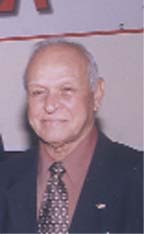The Indian Commemoration Trust (ICT) is happy to celebrate this historic day not only with Indians but with all Guyanese because this is a part of our history as the indentured Indians made tremendous contributions in helping to build the nation, ICT Honorary President, Dr Yesu Persaud said in a statement on the commemoration of Indian Arrival.
He said further that the ICT would also like to express its gratitude at “seeing other organizations joining in to celebrate the arrival of the indentured Indians since this is a day all Guyanese should be proud to celebrate.”
Dr Persaud who is also Chairman of Demerara Distillers Limited noted that this is the 21st anniversary of the ICT, which commemorates the day at the Indian Monument Gardens at Church and Camp streets, Georgetown.
And taking a brief historical look at the event, Persaud recalled that on May 5, 1838 the sailing ships Whitby and Hesperus left Calcutta with 437 Indian indentured workers for British Guiana, now called Guyana after Independence in 1966, and 18 persons died during the voyage; 14 from the Hesperus and four from the Whitby. Four of the deaths were from a deadly outbreak of cholera owing to highly unsanitary conditions aboard the ship and the bodies were unceremoniously thrown overboard. However, the ship’s surgeon worked tirelessly and was able to bring the dreaded disease under control.
And pointing to an important lesson which the indentured Indians learnt on board the ships, Dr Persaud said that irrespective of class or caste they had to work together as a team on board the ship and form a bond that kept them together and brought about the concept of ‘Jahagiship’.

Looking at their earliest experience in the then British Guiana, Persaud observed that on arrival in Demerara and Berbice they were allocated to the sugar estates and commenced work on the second day of arrival. Their dwellings were the same slave logies occupied by the slaves who were given final freedom on August 1, 1838.
“The indentured Indians were a little better off than the slaves, but they could not leave the plantations without a pass and anyone found off the plantation without a pass was arrested and jailed or fined. And the indentured Indians were not allowed to mix with the slaves since the British masters feared the slaves would try to sow discord against their masters. Those who challenged their masters were tied to a post, beaten with cat-o-nine tails and salt was rubbed in their wounds,” Persaud recounted.
Moreover, he observed, the indentured Indians were treated horribly on the sugar estates by the plantocracy and the general idea was that they had no culture and with no knowledge of Christianity, they were referred to as idol worshippers. During the period 1838-1917, 240 indentured workers came to Guyana of whom 70 percent stayed to build their homes in Guyana.
But despite all the hardships, the ICT Honorary President asserted, the remaining indentured Indians who braved their way through the many storms made some great contributions in every phase of life.
The colonial masters didn’t have a clue that these people had a history and culture dating back to the mist of time and so they did not realize that their very ancestors were the ones who had written the immortal Mahabharata, the Ramayana, the Bhagwat Gita and the Upanishads, works which could not be replicated, Persaud said.
In addition, he said that it should be remembered that the numeration system, mathematics, algebra, trigonometry, etc were discovered by the Indians thousands of years ago while the West was living in darkness.
In the meantime, the ICT has been continuing the celebration of the arrival of the indentured Indians and will do the same for this 171st anniversary.




